Search engine optimization (SEO) is a challenging profession because so few people possess all of the character traits necessary for success in this industry.
If you’re reading this, then you’re probably already a part of this rare and elite group.
There is another rare group that also attracts the type of people who possess these character traits. Another group that I feel both honored and blessed to be a part of. And one that you’re probably hearing about everywhere today.
That group is military veterans.
It shouldn’t surprise anyone that the search industry would attract exactly the type of people who tend to thrive in the challenging and complex environment found in the military.
Some of the character traits that enable veterans to excel in the SEO industry include:
Problem Solving
Every mission is different.
Whether we’re talking about an Imagery Interpretation Specialist analyzing aerial reconnaissance photos in an air conditioned building at Offutt Air Force base in Omaha, or a Marine Recon operator just about to breach the steel door of an enemy compound in Ramadi, our military have to solve complex, high-stakes problems on the fly.
In the SEO industry, we also face complex, high-stakes problems. While not life or death, these problems have a tremendous impact on the financial (and sometimes emotional) stability of our clients.
This plays a significant role in the day to day activities of an SEO professional – from figuring out why certain pages don’t rank well, to finding ways to earn new links, to identifying how to get visitors engaged with your content.
Effective problem solving is the foundation of modern SEO.
Flexibility
In the military, it’s often said that no plan survives first contact. In other words, once the bullets start flying, things change fast and we need to adapt quickly or people will die.
While no one is going to die over an algorithm update, things in this industry change quickly, frequently, and often without advanced notice.
In order for both SEO practitioners and our clients to stay in business, and more importantly, to thrive, we must adapt in real-time.
We’ve seen clear and powerful examples of this in some of Google’s updates, including Florida, Panda, and Penguin, which have completely changed our approach to SEO over the years.
Resiliency
Going without sufficient sleep, water, and food, all while enduring tremendous physical and emotional challenges, is pretty common in the military.
We are constantly pushed, both voluntarily and by the needs of the mission, far beyond what we once thought was our limit. This builds a physical and mental toughness that is both priceless and rare.
In the SEO industry, resiliency is an essential character trait because we’re constantly battling not only our competitors, but also Google’s ever-changing algorithm.
Some in the industry have chosen to leave because of these type of challenges, but in classic Darwinian fashion, true leaders push through this adversity, guiding and mentoring the next generation of professionals. This is essential for long-term success — both for the individual as well as the industry as a whole.
Integrity
Doing the right thing, even when no one is watching, matters, because in the military, every action can have life or death consequences.
For example, failing to pack extra batteries for your radio because you don’t want to carry the added weight may mean that you’ll be unable to call for fire support or a medivac if you get stuck on a mission for longer than expected.
Our industry has a sometimes well-deserved black eye because those who lack integrity often choose black hat tactics for a short-term win and quick profits.
Avoiding tactics that put clients at risk of a penalty requires unwavering integrity at all times. Anything short of that exposes the client to potentially catastrophic loss and further damages the reputation of the entire industry.
Communication
In today’s complex battlefields, effective communication is critical for sharing accurate and time-sensitive intelligence, receiving details of troop movements, and coordinating resupply and air strikes.
Ineffective communication in the military often means the good guys die and the bad guys get away.
Communication is critical in SEO as well, because we need to clearly demonstrate our value by explaining KPIs for an incredibly complex service in a way that our clients will understand.
Beyond that, we need to take something they typically have little to no interest in, and convince them to make the time to discuss it regularly in order to deliver the best results possible.
Service to Others
While most in this industry probably aren’t willing to jump on a grenade to save the people they work with, many have demonstrated a level of brotherhood that I haven’t seen in any other civilian industry.
You need look no further than a private Facebook group, created for the industry by Mary Davies, to see a perfect example.
Following several suicides in our industry, Davies created the group as a place for members of our community to vent, reach out for help, and check on other members. Shortly after it was created, people began to open up.
There were even a couple of cases where people had gone “off the grid,” disappearing from social media, which prompted others to mobilize, until someone had confirmed that person was indeed OK, and not in need of help. In fact, that happened to me when I took a break from social media.
That’s just one example of of literally hundreds that I’ve seen or experienced first hand within our industry.
How Has Military Service Prepared Veterans for a Career in SEO?
As we prepare to celebrate another Veterans Day, I wanted to take an opportunity to highlight some of the military veterans within the SEO community.
These are people who have put their lives on the line in service of others, and today, continue to go above and beyond in serving the SEO industry.
The character traits they’ve honed during their time in service have benefited themselves, their clients, and everyone in the industry, and they deserve recognition for their service, sacrifice, and contribution.
What follows are their stories, in their own words.
Alan Bleiweiss
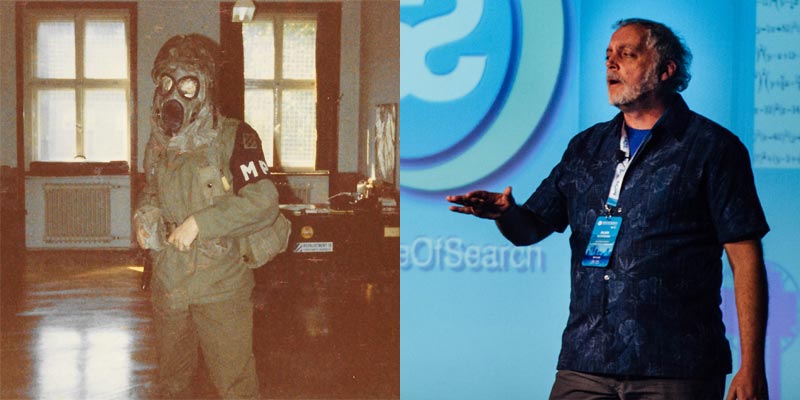
I served in the Army, from 1979 to 1982 at the height of the tail end of the Cold War.
A valuable lesson I learned is that proper planning prevents piss poor performance. The higher the quality of the preparation before taking on a formidable task, the more likely things will go smoothly.
The more realistic I am about unanticipated issues along the way, the better prepared I will be when something goes wrong. So I need to have a process, and a plan, and an action set for my work.
I need to understand what to expect, when to expect it, and how to deal with the unexpected. I need to anticipate, where possible. I need to apply a proven system to the work I do, if I want consistently good outcomes, within realistic parameters.
My primary job was crime prevention in the Military Police, where I learned to apply the concepts of investigative evaluation, looking for artificial patterns, and detecting vulnerability / weakness in a system.
I also learned how to put my mind in the eyes and thoughts of others, to “think like they think,” and understand what and why and how they do what they do. It was vital to my mission.
Since these systems were mission critical, and truly “life or death” important, it was vital that I do my job, and do it well. To the highest level of success possible. Lives were on the line.
So, too, with my SEO audit work, I treat it the same way. While a site’s success may not be as seriously “life or death,” it can cause the site owner, managers, team members, and their families, to lose their income. Which can be devastating.
The value such sites can offer to people looking for answers, help, and solutions, is just as important. Because that can impact not only that searcher, but their employer, their business, and the lives of everyone they interact with.
One of the most painfully sad, while simultaneously humorous things I learned in the Army was “Good enough for government work.” Which, under certain circumstances, means “don’t bother doing more than you really need to, because it won’t matter anyway.” Obviously, in life or death situations, that phrase is out the window.
Yet, in much of the mundane day to day of military life, that awareness helps with sanity, and helps with the fact that any one person only has so much energy, time or resources, so sometimes “good enough” will have to do.
In my audit work, because I am part perfectionist, part impostor syndrome sufferer, I can, when not careful, spend too much time, too much effort, and too many resources on my work. So I need to remember “this is enough – good enough will have to do, because I’m about to implode”.
It doesn’t mean I take shortcuts. Nor does it mean half-ass measures. It means accepting that I am being paid to deliver a findings and action plan document, I am not being paid to do all the other work.” It means “This is above and beyond as far as a strategic plan goes” while also meaning “and this other work needs to be separate from this contract.”
In the military, you are trained to work in teams. Again, this is life or death stuff. It means “know your limitations,” and “know when to call on others for support.” It means “I can’t, we can.”
The same concepts apply to my work with audits. I don’t have all the answers all the time. So I need to be willing to reach out to others — people I trust with my business life, in the industry, who might have those answers I don’t.
It also means I am not meant to be anybody’s savior. I’m not a hero. I’m just one person. Yet with the right team, collaboratively working, together we have the best potential for the best possible outcome.
Even though I am an independent consultant, I do have a part time assistant. And even though I can do the implementation described in my audits, I am only one person, so over the years I have built a team of professionals I can reach out to, who are capable of that implementation.
Whether I refer work out, or collaborate with others, or some other process model, teamwork is invaluable. Which allows me to focus on what I do best:
- Observe.
- Evaluate.
- Understand.
- Recommend.
- Guide.
- Support.
My ego routinely needs to be kept in check. In the Army, I learned too many valuable lessons about resting on my laurels, and pride.
So, I need to remember to remain or return to being humble in this industry. I need to always respect the process, and admit when I’m wrong or I screw up. I need to take personal responsibility, and whether I take responsibility for my screw ups or not, I will be held accountable.
Elmer Boutin
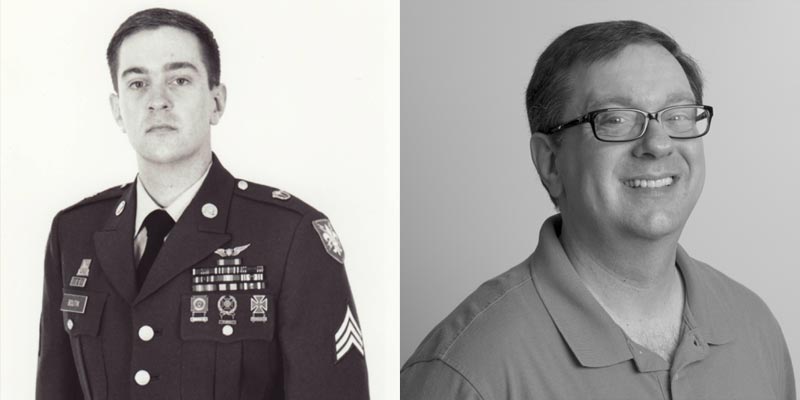
I worked for Kmart at a small Kresge store in Metro Detroit during high school. When I graduated, I was promoted to Stock Room Manager and ended up working full time and going to school at night.
After a couple years doing that, I realized that retail was not going to be part of my long term career. I ended up joining the Army, enlisting to work as a Czech linguist and an intelligence analyst.
Basic training was a challenge, and one that gave me a lot of confidence. Going through the Defense Language Institute was a huge academic challenge. High school and college came easy to me, but this did not.
I worked my butt off, though, to avoid being one of the nearly 50 percent of students who washed out of the school. I graduated and ended up at Fort Bliss, Texas in El Paso. An interesting place for a Czech linguist.
The unit was in a pretty bad state when I showed up. I had pretty much decided to get out when my enlistment was up. That was a turning point for me because all the leadership changed in my unit within a month.
We got a great commander and First Sergeant who really turned things around for me. I decided to reenlist so I could go to Germany, which turned out to be one of the highlights of my military career.
Afterwards, I found myself back in El Paso, this time as an EH-60 crew member. That was the unit I went to Desert Storm with. After that, another tour in Germany and then to Fort Hood, Texas — just north of Austin.
Much of the experience I got in the Army as an intelligence analyst transfers directly into the work I do in digital marketing. I also worked with some equipment that was very advanced, for the time. That also helped me with the technical aspect of our work.
Overall, I got a lot out of my 14 years in the Army — certainly a lot more than I put into it.
I don’t think I would have been as successful in digital marketing work, nor in my life in general, without the experience and knowledge I got during my time in the Army.
Doc Sheldon Campbell
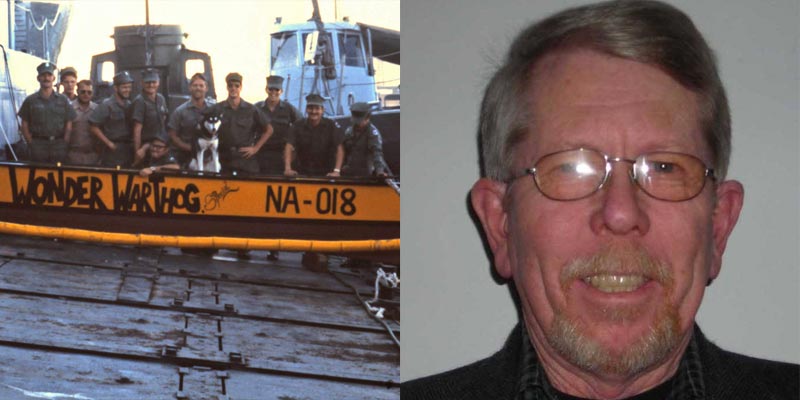
I was a snot-nosed kid when I went into boot camp. The physical aspects weren’t demanding – mostly because I joined the Navy. And to be fair, I had an edge on most of the guys in my company, since my dad was retired military…so I knew what to expect.
See, in boot camp, there’s a lot of head games — totally necessary, because most guys (and these days, a fair number of gals, too) haven’t had to really push themselves before. They haven’t had to depend on the folks on either side of them, either.
At 17-18 years of age, you don’t know yet what you’re capable of. Sure, you feel invincible, capable of anything, but deep down, since you haven’t actually had to do it yet, there’s an element of doubt.
Boot camp pushes you to dig deep, do more than you’ve ever done before, more than you thought you could. And it teaches you to dig still deeper – down to that more-than-humanly-possible level – and then some. It teaches you that your limits are largely self-imposed.
Then, maybe you get sent into combat. All that training you went through comes rushing to the top. And it comes in real handy. It’s the kind of thing that keeps you – and your buddies – alive.
You begin to realize that that lantern-jawed D.I. or evil-eyed Chief you hated so much knew a little something of what they were talking about.
If you’re one of the lucky ones, you come back — hopefully in one piece, physically and mentally. I was one of the lucky ones, but all my buddies weren’t so lucky. I was lucky enough to get a chance to put that training and experience to work in a new arena.
At first, I went to work in construction, because I couldn’t stand sitting around. So I went back to school and got a degree, spent a while working in management in some manufacturing plants and gradually moved into my own consulting business. But I got bored after a while and decided to do my own thing and spent 20 years teaching companies how to be more efficient, more productive.
Never one to stay in one place long, I got tired of that, too. I was spending more than half of each year on the road and I had a young teenage daughter I wanted to spend more time with. That was around the turn of the century, and it was obvious this Internet thing wasn’t just some fad that people were going to lose interest in.
So I decided I could still work for myself, and not have to travel so much, by getting into digital marketing. Over the last 15 years, I’ve slowly shifted my focus to technical SEO and website building.
What has always amazed and amused me is that all those skills I learned in the military — responsibility, analytical skills, attention to details, consideration of logistical issues, motivational skills and more — they’ve all served me well in business. Except the marksmanship. I haven’t figured out a way yet to put that to use in my consulting work. Yet.
Brent Csutoras
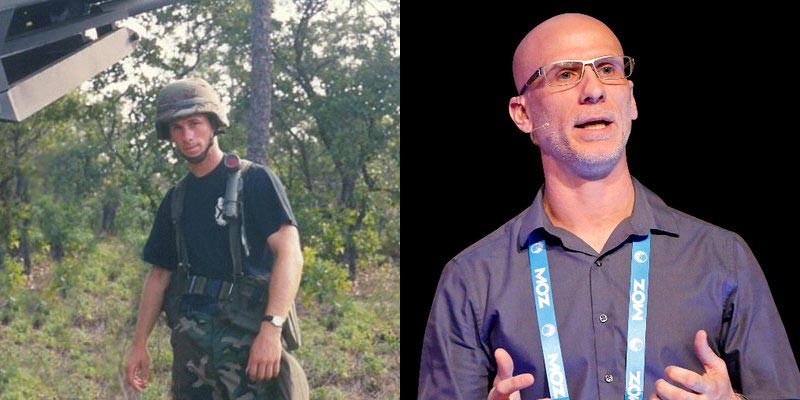
My father was in the Air Force most of his adult life, serving as a Firefighter. I was a military brat, having been born in Germany at Landstuhl Regional Medical Facility, a U.S. Military operated hospital. I lived on Air Force bases until I was a teenager and so I was very accustomed to the military life.
When I was struggling after high school, the military seemed like a great way to start a career, get some education, and get a fresh start, which I really needed at the time. So after testing almost perfect on my ASVAB the Air Force told me I could do anything I wanted, which lead me to choose Meteorology.
I joined the Air Force on December 10, 1997 and was off to Lackland for basic training. Basic Training was really interesting for me, as it further fostered my understanding that a system was good, but ultimately if you want to get ahead you have to hack the system.
In the first 24 hours, we had been sat down and the TIs asked who was religious. My newly found friend next to me told me to raise my hand, as only he had his hand raised. I did and we were both selected to be chapel guides, which meant we woke up on Sunday before anyone else, ate alone and whatever we wanted, before we left on our own to walk to the Chapel.
At the Chapel we would help guide others to their correct places and provide information, but more importantly, we were able to use the phones to call home and eat fast food that was provided to us by the active military coming in with breakfast.
We also quickly learned that we could also send out mail, which would later become a huge commodity as our unit was banned from sending mail as a punishment for some individuals not following the rules.
After graduating Basic Training, I was off to Keesler AFB to start training as 1W031 – Weather Observer.
Upon graduating from Tech School, I got my first orders to Grand Forks, North Dakota, which was considered one of the worst bases you could get in the U.S., due to the extreme cold and remote location. Right before I was about to fly out, my orders were changed and I was sent to Dover AFB, Delaware, which was not the most amazing base but was far better than Grand Forks.
Arriving at Dover in June 1998, I thrived in the military environment with structured systems that could be hacked to progress faster and gain recognition. I was able to help our unit pass an OSHA inspection for the first time in years, which lead to the base commander granting me relocation to my number one base on my dream sheet, which is a sheet of bases you hope to be stationed at. In December of 1999, I was off to Yokota AFB, Japan.
Oh side note, while at Dover AFB, during an exercise that was as close to real world simulation as possible, I shredded both my meniscus in my right knee while kneeling to report operations updates to the WOC unit. I was medically evacuated, had surgery, and took quite some time to recover from the whole ordeal.
In Japan, I continued to thrive in the military system, working on many various projects including creating a new version of the weather presentation, which was shown on a specific weather channel for the base. I researched and coded the presentation to pull in real time animations of weather panels and various weather details, saving a bunch of time and improving the experience as a whole. This lead me to be nominated for Airman of the Year, which I unfortunately did not win.
I was a few months from separating from the Air Force when September 11, 2001 happened. I was watching TV when the planes hit the WTC buildings and remember hearing the sirens as the base went real world Delta. I was immediately called in to work and remember just hearing the sirens and seeing basically no one on the streets as I drove quickly to the station.
I was then stop-lossed, meaning I was not allowed to be released from active duty. Unfortunately, the systems were not set up to handle that, so my ID expired and they could not print me a new one, my pay stopped coming, I have no Leave & Earning statements, etc. I had to carry a letter saying was active duty, got my pay in cash, and had to manage my Leave & Earning on my own, to know how many vacation days I had and etc.
Alternatively my Weather Observer position had gone away, as they were moving away from individual base weather units to regional weather stations, which required a different level of training which I had not received due to my plans to separate.
I was lucky enough to become a security forces augmentee for the last eight months of my career. I spent quite a bit of time, including Christmas Day, up on a makeshift tower, in the snow, freezing on guard duty for 12 hours at a time, securing the base walls.
I think one of the things I really took away from the military, is the ability to see even extremely large tasks and goals, in smaller accomplishable elements. As you well know, the military teaches you that every task, small or large, has a micro tasks that need to be accomplished in order to be successful.
With SEO, and many other forms of marketing, it can seem extremely complicated, with numerous steps and in many scenarios have no clear path to success. You have to have confidence in yourself and experiment to see what actually works.
Jason Hennessey
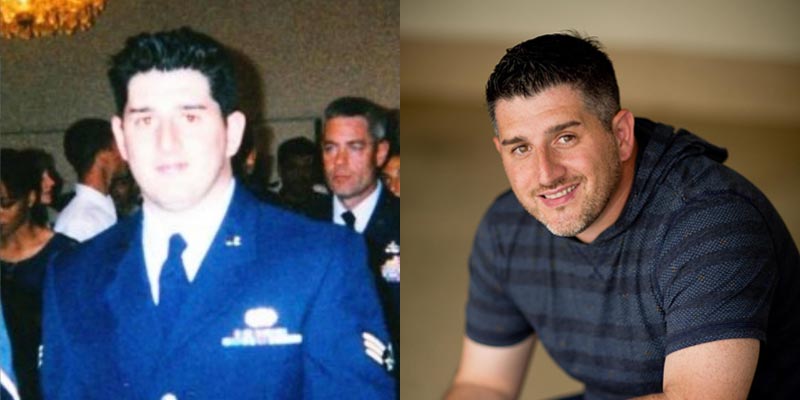
For one, joining the Air Force quickly turned me from a boy into a man very quickly. I highly recommend the military as an option for those that either can’t afford college or just don’t truly know what they want to do with their life post high school.
There is no better organization in the world than the U.S. Government to learn about procedures and having processes. In the Air Force, people could die if we didn’t adhere to the systems and processes put in place. I’ve seen crew chiefs thoroughly inspect (and reinspect) their pre-flight checklist to keep their pilot and aircraft safe.
While the decisions that my team and I make on a daily basis are not life or death, having the discipline and experience to develop business systems and processes allow us to get results, keep our clients happy, and scale our services.
Another trait that I learned in the Air Force is the importance of recognition.
In my Air Force days, each month we would have a recognition ceremony at my squadron where our commander would recognize those that went above the call of duty for the month with public praise and words of encouragement.
These short ceremonies would make the recognized individuals feel very proud of their contributions but it also boosted the moral throughout the entire squadron. At our agency, public recognition is a large part of our culture. Our management team will always find a way to publicly say thank you to members of their team that do a great job or excel at their daily duties.
From the first day of boot camp, it was apparent that the military put a lot of emphasis on attention to detail.
I can still recall staying up all night, shining my boots, to the point where I could see my own reflection on the tips. I also remember ironing and tweaking my underwear (literally with tweezers) so that they were perfect for inspection to avoid getting yelled out by my Training Instructor (TI).
Attention to detail quickly became a part of my DNA and character. Through my entrepreneurial / digital marketing career these detailed oriented strengths created more efficiencies while minimized the risk of errors.
While serving my time in the Air Force, I was part of a logistics team and spent a lot time analyzing information, looking at data through different points of view, and trying to solve problems. Who would have thought, nearly 20 years later, I would still be doing the same analytical thinking, but studying different data sets, like Google analytics, keyword research, competitive analysis, and A/B split testing, etc.
Overall, the biggest characteristics that I am really proud of, that I learned from the military, is the importance of having integrity with everything that I do in life. Integrity is vital throughout your military and business career.
At the young age of 18 years old, I had security clearance with access to classified information, if this information was ever breached or disclosed in any way, it could have caused serious damage to national security.
As a husband, father, boss, or friend, whichever hat I am wearing, I try to live my life filled with truthfulness and honesty. Businesses (both large and small) often fail because they don’t have integrity.
Integrity means telling the truth even if the truth is ugly. In the world of digital marketing, when a Google algorithmic update takes place, and your clients see a drop in traffic and rankings, it’s important for us to have integrity by educating the client, telling them the truth about what happened, then analyzing the data and coming up with a solution to recover from the loss.
Bill Hunt
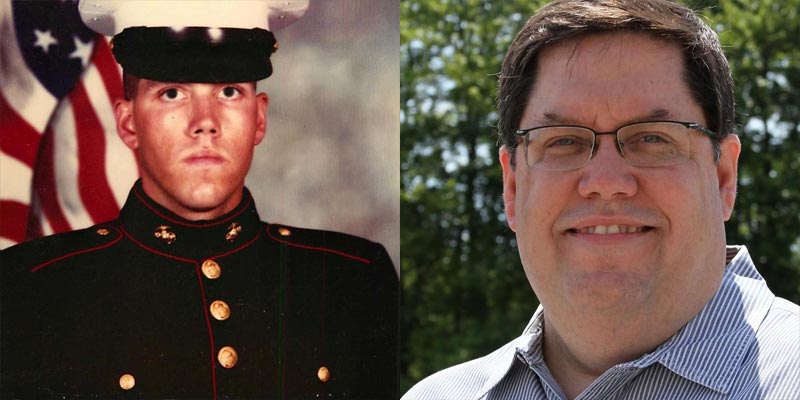
I spent 10 years in the Marine Corps doing a wide range of specialist activities from drug interdictions, embassy security and evacuations and various jobs where I got to shoot and blow things up.
Realizing these jobs, while cool and often an adrenaline rush, were not really in demand in the civilian world. I ultimately pivoted into a role where I could go to University part time and develop skills transferrable to civilian life.
I wrapped up my Marine Corps career as a Battalion Admin Officer with a deployed infantry unit. Leading a team of 18 Marines responsible for the admin operations for 1,000 Marines deployed during the Persian Gulf war.
The Marine Corps never really knew what to do with me so they sent me to numerous specialty schools where I gained valuable skills from being able to survive and fight in any climate or environment to leading and motivating people to accomplish phenomenal tasks in dangerous environments. Most importantly, these experiences gave me a level of self-confidence and can-do attitude that could not be fostered in any other way.
In the past 20+ years I have created a number of companies and developed technology in a a variety of different verticals. Looking back, I have identified the following traits and skills learned in the military’s that made my success possible.
Be a Student of Your Craft
Every officer I served under was always reading and learning new skills, techniques and tactics. All of my mentors we successful because they were well rounded in their thought and decision-making process.
Adopting this mindset, I don’t just read industry blogs and business books but wider strategy and tactics of Sun Tzu and Atilla the Hun and negotiation tactics from Madelyn Albright and Teddy Roosevelt. I created reading libraries in my agencies and strongly encouraged reading and adopting ideas from other disciplines.
Mission Planning & Flexibility
Every mission starts with a mission order which gives you the “Commander’s Intent” as well as key admin, logistics and communication details. It is not a huge binder of detailed analysis of every nuance but five simple paragraphs of what the objective is and the tools available to you to complete the mission.
The rest of the details are up to the individual team leader to their skills and situational awareness to adapt when things don’t go as planned. I experienced first-hand that something will go wrong and you must able to “improvise, adapt and overcome” any adversity and trust your team to get the job done.
Secondly, the Marine Corps is a Combined Arms structure where you interact with all different disciplines. Your mission will fail if you cannot communicate and work with other disciplines like aircraft, armor, artillery, and support teams.
These skills help you understand the interconnected value of operations and logistics and that without these other elements you mission will fail just as your company will fail.
Team & Individual Performance Improvement
From the first minutes of arriving at Marine boot camp you become part of a team and immediately realize your individual performance directly impacts the rest of the team.
You learn how to understand the individual personality, strengths and weaknesses of each team member, but most importantly what motivates them. It is counterintuitive, but you learn to give
Angie Schottmuller
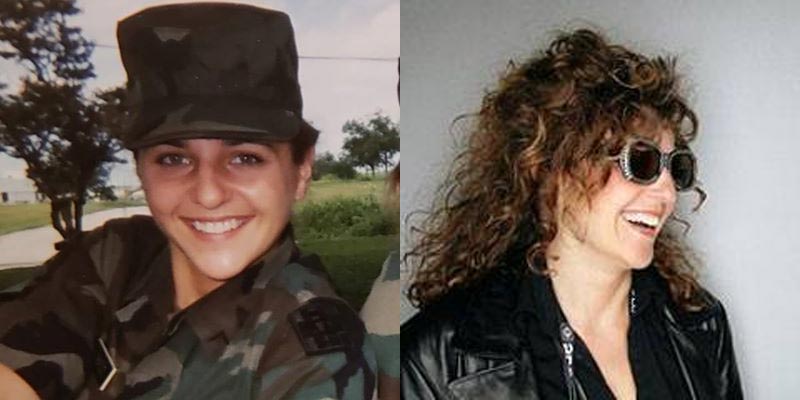
From 1996 to 2001 I served in the U.S. Army Reserve 452d Combat Support Hospital. It was one of the best experiences of my life. After all, how many people do you know who could both defend and save your life against lethal threats?
As NCOIC (non-commissioned officer in charge) of Patient Administration, I was responsible for the admittance, management, and evacuation of all patients. Working in a military hospital is quite intense. In addition to the threat of attacks, the patients rely on you to heal, protect, and save them.
Two standout military skills gave me an advantage in my marketing career: teamwork and attention to detail.
Success and survival are only possible with the support and trust of a team. Everyone on the team was trained to learn attention to detail — a skill I previously would not have thought of as “teachable.” In battle or a hospital, if you miss a detail, people could die.
Although I changed my career path from doctor to computer programmer (and eventually growth marketer), I would not be the person or marketing optimizer I am today without my military experience and the exceptional relationships I built along the way.
To those who have served and and continue to serve, I salute you.
JP Sherman
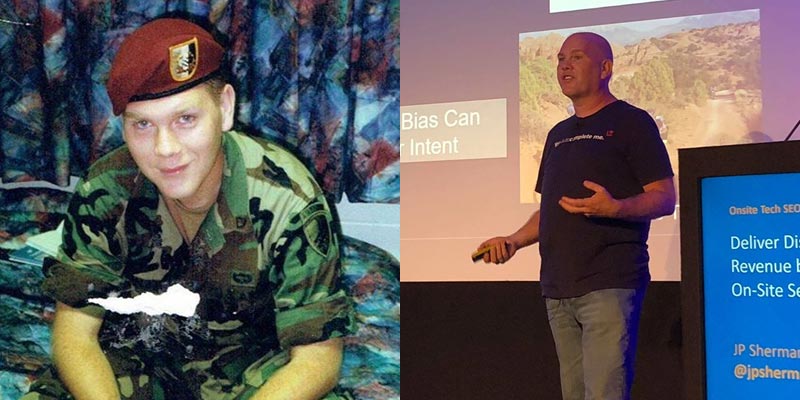
I’m JP Sherman and I’m the manager of search and findability at Red Hat, this means I don’t just focus on SEO, I also manage how people find information they’re looking for from whatever pathway they use to find things.
If you knew me in high school, the military was the last place you’d expect to find this crunchy, punk-rock, artist-type California city boy.
Before I started working in the field of search, I had dozens of jobs…from field work in evolutionary biology to archaeological consultant to carnival worker to autopsy assistant. In all of these experiences I’ve collected, one stands out as one of the more significant things I’ve ever done.
I joined the U.S. Army as Psychological Operations (Airborne). PSYOP has the motto “Verbum Vincent” translated to “Victory Through Words”. Honestly, if this was a movie and you saw this motto, you’d groan because of the painfully obvious foreshadowing of what I would end up doing.
During my time in PSYOP a part of US Special Operations located in Fort Bragg, North Carolina, I:
- Learned Korean, German, and Spanish.
- Jumped out of airplanes, helicopters, and hot air balloons.
- Helped develop land mine and malaria awareness campaigns throughout Southeast Asia.
I loved my job helping with humanitarian issues and making a direct impact in the lives of people.
During one of those campaigns, I was in a meeting with a bunch of high ranking officers who were trying to figure out how to use the internet to reach out to younger targets. It went exactly how you’d think a bunch of 50-year-old dudes in the 1990s would talk about the internet.
I was taking notes and one of the generals shouted “Hey Sherman, you’re a nerd, right?”
I responded affirmatively.
“I need you to figure out search engines and give us a report next week.”
I did that and from that point on, the combination of creativity, semantics, and technology stuck. I ended up working on information dissemination campaigns on humanitarian operations around the world.
I ended up working in Raleigh, North Carolina where the inimitable and brilliant Jenny Halasz was one of my first SEO mentors.
My military experience was not only just the place where my passion of search was sparked, it taught me:
- Leadership.
- How to measure efficacy.
- Collaboration and teamwork.
- Courage and service to others.
Steve Wiideman
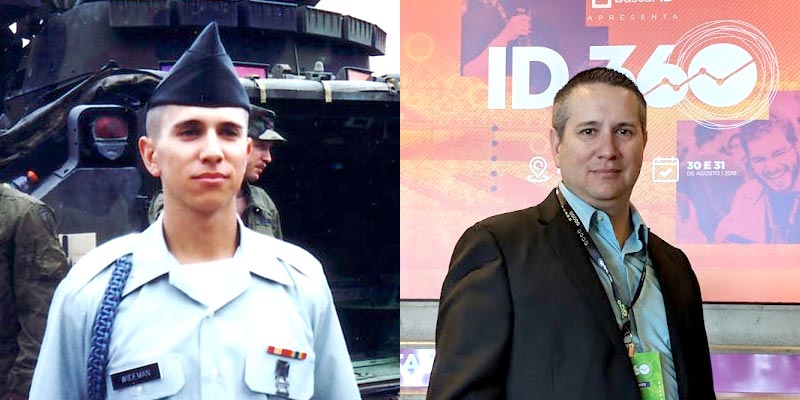
I was 11 Mechanized Infantry, a Bradley Fighting Vehicle driver and drove for the Adjutant at 1-22 Infantry in Fort Hood, Texas.
The advantage the Army gave to me was the ability to do repetitive and often difficult tasks that most people are too lazy or complacent to put any effort into.
Going through 185,000 keywords for a restaurant franchise as an example, where we’ve created an insanely comprehensive site taxonomy plan that’s already crushing it in online orders for off-premises delivery and carside (among other things).
It’s also taught me that there is no “No,” that anything can be accomplished with the right amount of critical thinking, teamwork, and confidence.
Less talk, more walk. There’s a lot of SEO’s that sure talk a lot about what they can do, while we’re in the trenches doing the grind and helping our clients without all the ego or jibber jabber.
Get the job done quickly and efficiently, and go the heck home.
I’m proud to be veteran and think every kid could benefit from doing the minimum term of service. After all, it isn’t the destination that matters, it’s who you become on the journey.
Featured Image Credit: Dreamstime, modified by author
Subscribe to SEJ
Get our daily newsletter from SEJ’s Founder Loren Baker about the latest news in the industry!
